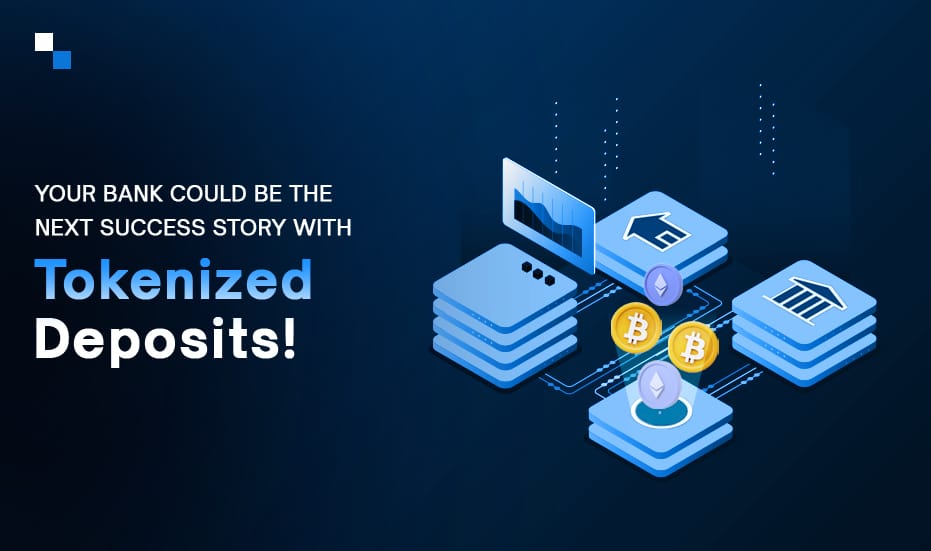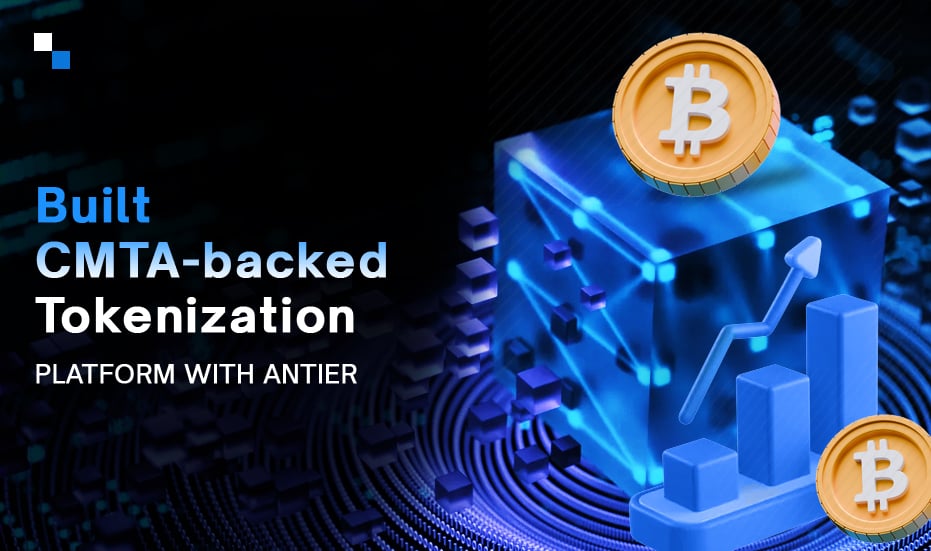
How Is Crypto Coin Development Revolutionizing The P2E Gaming Industry?
July 2, 2024
How to Build a Play-to-Earn Game Like PlayDoge
July 4, 2024Imagine a world where exclusive investment opportunities, once reserved for the privileged few, are accessible to a broader audience. Enter hedge fund tokenization – one of the most fascinating advancements, a revolutionary approach that redefines how alternative investments are structured, accessed, and managed. This comprehensive blog delves into the intricate world of hedge fund tokenization, meticulously dissecting its “whys” and “hows,” along with real-world examples to illuminate the path forward. Let’s dive in!
Breaking Down Barriers: How Tokenization Democratizes Hedge Funds
Traditional hedge funds often face limitations that tokenization can effectively address. Here’s a closer look at these challenges and how tokenization offers solutions:
High Minimum Investment
Hedge funds typically demand hefty initial investments, restricting participation to a select group of high-net-worth individuals and institutional investors. This exclusivity can hinder portfolio diversification for a broader range of investors. Tokenization offers a compelling solution through fractional ownership. By dividing the fund into smaller, more accessible units represented by digital tokens, fund tokenization opens the door for a wider investor base to participate in alternative investment strategies and achieve greater portfolio diversification.
Limited Liquidity
Hedge funds are notorious for being illiquid, meaning investors may face difficulties when trying to sell their shares. This lack of liquidity can discourage potential investors and limit portfolio flexibility. Tokenization facilitates the creation of secondary markets where investors can trade their tokens more readily. These secondary markets enhance overall liquidity, allowing investors to enter and exit positions with greater ease.
Operational Inefficiency
Traditional fund administration involves a manual and time-consuming process. Imagine cumbersome paperwork, tedious record-keeping, and error-prone calculations. Smart contracts, the self-executing code on blockchains, can automate these tasks. Subscription management, distribution of returns, and investor reporting can all be streamlined through secure and transparent smart contracts, leading to increased operational efficiency and reduced costs for the fund manager.
Transparency Concerns
Investors often have limited insight into a hedge fund’s underlying investment strategy and management decisions. The lack of transparency can breed distrust and hinder investor confidence. Blockchain technology offers immutability and transparency. Transactions and asset ownership are recorded on a public ledger, allowing investors to track the fund’s performance and investment activities more readily. This enhanced transparency with hedge fund tokenization fosters trust and empowers investors to make informed decisions.
How Does Hedge Fund Tokenization Work?

The process of tokenizing a hedge fund involves a series of critical steps:
Fund Establishment
The legal framework for the tokenized hedge fund is established. This involves the creation of a legal entity to hold the underlying assets of the fund and ensure compliance with relevant regulations.
Asset Tokenization
The assets within the hedge fund portfolio are represented by digital tokens on a blockchain platform. These tokens can encompass a broad spectrum of assets, ranging from traditional stocks and bonds to alternative assets like private equity or real estate.
Smart Contract Development
Secure and transparent smart contracts are coded to govern the fund’s operations. These contracts define the rules for investor subscription, redemption, fee structures, and distribution of returns. They essentially act as a digital rulebook, ensuring the smooth and automated functioning of the fund.
Compliance
Regulatory considerations are paramount. The fund must comply with all relevant regulations concerning token issuance, investor onboarding (KYC/AML – Know Your Customer/Anti-Money Laundering), and ongoing reporting requirements. Failure to comply can lead to significant legal and financial repercussions.
Token Distribution
Investors subscribe to the fund by purchasing tokens through a token offering process. This offering may involve a private placement, where tokens are offered to a select group of accredited investors, or a public offering, depending on regulatory limitations within the specific jurisdiction.
Secondary Market Creation
A secondary market platform facilitates the trading of the tokens after the initial offering. This allows investors to enter and exit the fund more easily, further enhancing the overall liquidity of the tokenized hedge fund.
Hedge Funds in Action: Real-Life Examples of Tokenization
Hedge fund tokenization is no longer a hypothetical concept confined to theoretical discussions. Several pioneering funds are already reaping the benefits of this innovative approach:
BlackRock: The world’s largest asset manager took a bold step in March 2022 by launching the first-ever tokenized credit fund in collaboration with Coinbase. The pioneering move signifies the growing institutional interest in exploring the potential of blockchain technology within the asset management space. It paves the way for a future where even established giants embrace the transformative power of tokenization.
Mainstream One: This Singapore-based hedge fund offers a tokenized version of its flagship fund, focusing on digital asset opportunities. By leveraging blockchain technology, Mainstream One aims for increased transparency and accessibility for investors. It allows them to participate in a traditionally exclusive investment strategy with greater ease and potentially benefit from the expertise of the fund’s managers.
Fluidity: Fluidity, the alternative investment platform utilizes blockchain to tokenize private equity funds. The approach allows investors to participate in traditionally illiquid asset classes with smaller investment amounts, democratizing access to these investment opportunities.
Important Considerations for Hedge Fund Tokenization
While the potential of hedge fund tokenization is undeniable, it’s crucial to address some important considerations:
Regulatory Landscape: Regulations governing tokenized securities are still evolving. Staying compliant with current and upcoming regulations is essential for any fund considering tokenization. This may involve navigating complex legal frameworks and obtaining necessary licenses. Failure to comply can result in significant penalties and reputational damage. You can get in touch with a premier hedge fund tokenization company that has a well-equipped technical as well as legal team.
Technology Infrastructure: Robust and secure blockchain infrastructure is crucial for ensuring the smooth operation and security of the tokenized fund. Choosing the right blockchain platform with appropriate scalability, security features, and regulatory compatibility is paramount. Additionally, the fund manager needs to have the technical expertise or partner with a qualified team to manage the infrastructure of hedge fund tokenization.
Investor Education: As a relatively new concept, educating potential investors about the intricacies of tokenized hedge funds is crucial for widespread adoption. It includes explaining the benefits and risks associated with tokenized investments, the mechanics of the tokenized fund, and the specific investment strategy employed by the fund manager.
The Road Ahead: A Glimpse into the Future of Tokenized Hedge Funds
Hedge fund tokenization development represents a significant paradigm shift in the world of alternative investments. By unlocking new avenues for investor participation, streamlining operations, and enhancing transparency, tokenization is poised to reshape the landscape of hedge funds. We can expect to see several exciting developments in the future:
Increased Institutional Adoption: As the regulatory environment matures and the technology becomes more established, we can expect to see wider adoption of hedge fund tokenization by institutional investors. This will bring additional liquidity and credibility to the space.
Specialization and Diversification: The emergence of a wider variety of tokenized hedge funds catering to different risk appetites and investment strategies is likely. This will allow investors to choose tokenized funds that align with their specific investment goals.
Integration with DeFi: We may see greater integration between tokenized hedge funds and the broader DeFi ecosystem. This could involve using DeFi protocols for functions like lending, borrowing, and asset management within the context of the tokenized fund.

Conclusion
The benefits of hedge fund tokenization are undeniable. By embracing this innovation, hedge fund managers can unlock new opportunities for growth, attract a wider investor base, and contribute to a more efficient and inclusive financial future. As the technology matures, regulatory frameworks evolve, and investor education efforts continue, we can expect to see tokenized hedge funds become a more prominent and impactful force within the alternative investment landscape. Want to venture into the hedge fund tokenization space? Get in touch with Antier, the reputed hedge fund tokenization development company.



